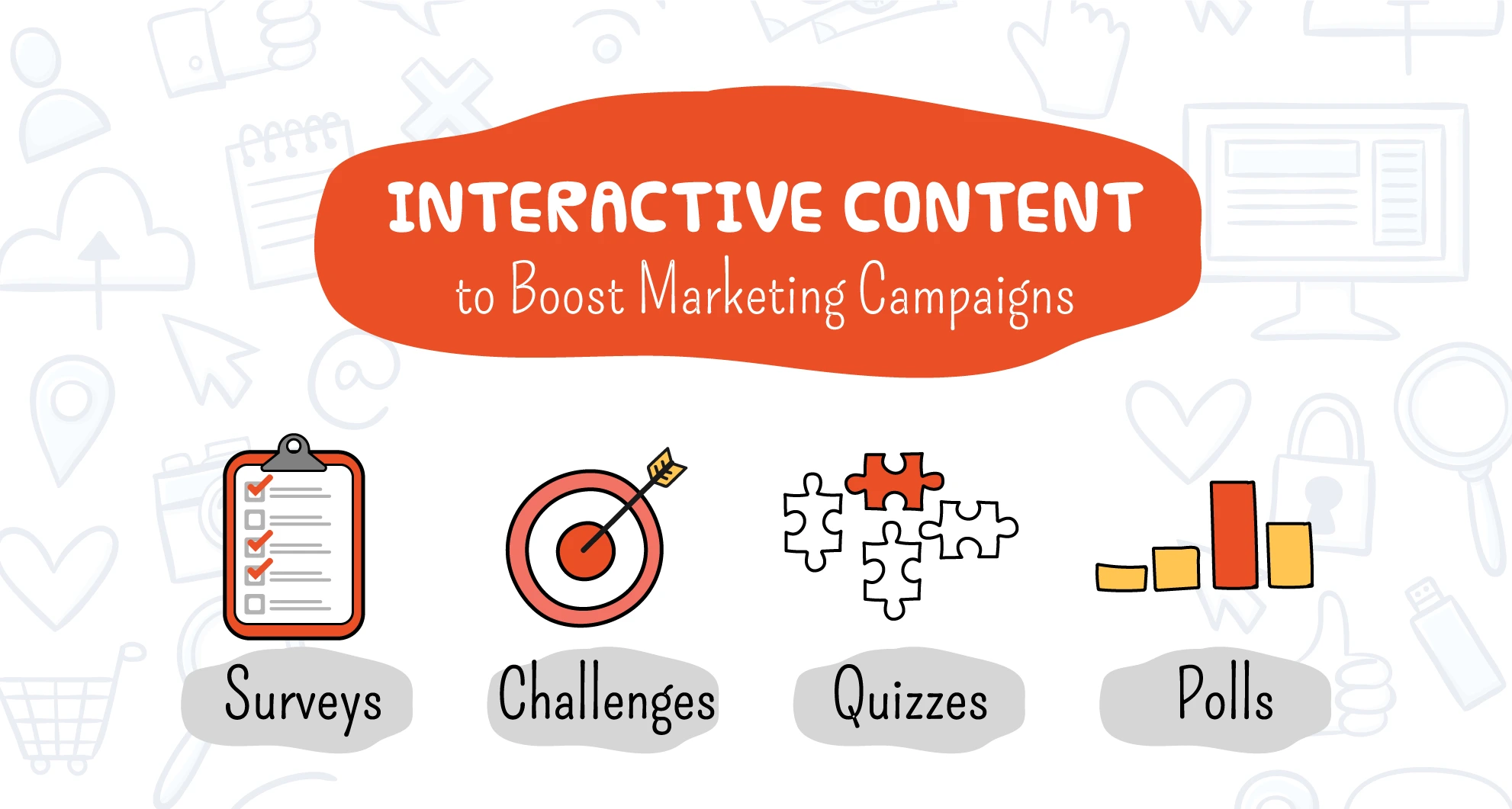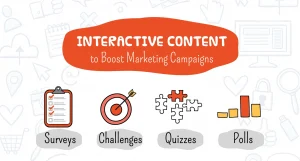The Role of Interactive Content in Boosting SEO Rankings
Introduction
Engaging users and holding their interest has become essential to successful initiatives in the constantly changing world of digital marketing. Interactive content for SEO dynamic elements such as quizzes, calculators, polls, interactive infographics, and videos have emerged as a powerful tool for enhancing user engagement. Beyond its appeal to audiences, interactive content plays a significant role in boosting SEO rankings. By improving user experience (UX), increasing time-on-page, and encouraging social sharing, interactive content aligns perfectly with the metrics search engines prioritize. This article explores how interactive content influences SEO and provides actionable insights to effectively incorporate it into your strategy.
How Interactive Content Enhances SEO Rankings
1. Improved User Engagement
By promoting active engagement, interactive content draws users in. Surveys, calculators, and quizzes encourage consumers to spend more time on your website. Search engines interpret longer dwell times as a sign that your material is worthwhile and pertinent.
2. Lower Bounce Rates
Static content sometimes fails to captivate users, leading to higher bounce rates. Interactive elements give users reasons to stay and explore further, reducing bounce rates and improving your site’s SEO metrics.
3. Higher Social Shares
Interactive content often sparks curiosity and encourages sharing. For instance, a personality quiz or an ROI calculator is more likely to be shared on social media, driving traffic and generating valuable backlinks.
4. Better Click-Through Rates (CTR)
Interactive headlines and content types grab attention in search engine results pages (SERPs). When paired with structured data, such as FAQ schemas or video markup, interactive content can increase your CTR, signalling relevance to search engines.
5. Enhanced User Data Collection
Polls, surveys, and forms embedded in interactive content help collect valuable user data, allowing you to refine your content strategy. Personalized content based on user preferences further improves engagement and SEO performance.
6. Improved Mobile Optimization
Interactive content is particularly effective for mobile users, where touchscreens make activities like swiping or tapping highly intuitive. Optimizing for mobile engagement aligns with Google’s mobile-first indexing priorities.
Types of Interactive Content for SEO
1. Quizzes and Polls
Examples: Personality tests, opinion polls
Benefit: Increases time-on-page and encourages social sharing.
2. Calculators and Tools
Examples: ROI calculators, savings estimators
Benefit: Provides immediate value and drives traffic through utility.
3. Interactive Infographics
Examples: Charts with clickable elements
Benefit: Combines visual appeal with user engagement.
4. Videos with Interactive Elements
Examples: Choose-your-own-path videos
Benefit: Boosts watch time and user involvement.
5. Interactive E-books and Guides
Examples: Clickable chapters, embedded questions
Benefit: Keeps users engaged for longer periods.
Best Practices for Using Interactive Content
Focus on Relevance: Ensure your interactive content aligns with user intent and provides value.
Optimize for Speed: Use lightweight designs and efficient coding practices to ensure fast loading times.
Incorporate Clear Calls-to-Action (CTAs): Guide users toward specific actions, such as sharing results or exploring more pages.
Use Structured Data: Implement schema markup to help search engines understand and display your interactive content in SERPs.
Test and Analyze: Monitor performance metrics like engagement rates and traffic to optimize future content.
Conclusion
Interactive content for SEO is not just a trend but a powerful mechanism to enhance user experience and boost SEO rankings. Encouraging deeper engagement, increasing time-on-page, and driving social shares align with key metrics that search engines prioritize. Incorporating interactive elements into your content strategy helps you rank higher and fosters meaningful connections with your audience. As digital marketing continues to evolve, leveraging interactive content will remain a cornerstone of successful SEO strategies.



Leave a Reply